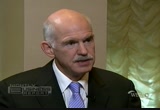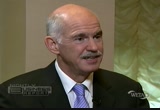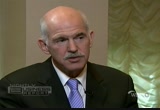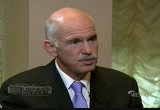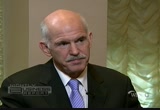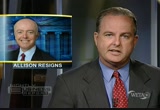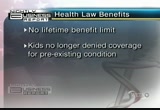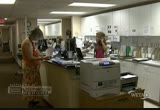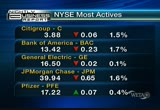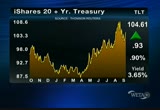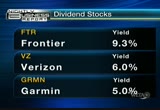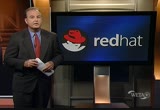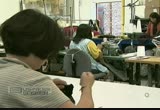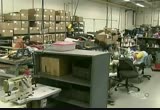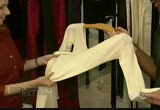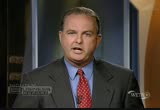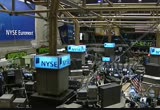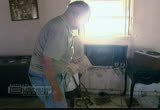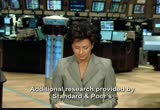tv Nightly Business Report PBS September 22, 2010 6:30pm-7:00pm EDT
6:30 pm
his country is open for business, and the public supports his reforms. >> we are delivering the results. we're making the changes. and i think this is something which is going to convince people to say "we'll hold on, we'll support this effort, we'll make it through." >> jeff: we talk about greece's comeback from the brink of financial collapse with prime minister george papandreou. you're watching "nightly business report" for wednesday, september 22. this is "nightly business report" with susie gharib and tom hudson. "nightly business report" is made possible by: this program is made possible by contributions to your pbs station from viewers like you.
6:31 pm
captioning sponsored by wpbt >> susie: good evening everyone. tom hudson is on assignment. jeff yastine joins me. remember the greek financial crisis? there were more demonstrations in athens today, as workers protested new labor rules. but here in new york, greece's prime minister told "nightly business report" his country's reforms are working, and the economy is getting back on track. >> jeff: susie, prime minister papandreou says greece is meeting targets set by the international monetary fund and the european union, after receiving emergency loans of $140 billion in may. and, he's encouraging american business to invest in his country. >> susie: i met with the prime minister a short while ago. my first question: what's the state of the greek economy?
6:32 pm
>> we have made major changes now. the economy is in a much better state because we've cut down the deficit by 40%. we are getting a vote of confidence from sovereign funds such as the norwegian pension fund, buying greek bonds, and recapitalization of our major bank, very positive. and there is a new confidence in the things we're doing. >> susie: but, mr. prime minister, many economists tell me the greek economy is still in serious trouble, and they're concerned that greece is at risk of defaulting on its debt. >> we've ruled out the option of default. if we were going to default, we would have done so early on. we decided no default. let's make the changes and be credible to our cred ders and show the world that greece can move forward. >> susie: why is it the economists still have the perception that greece is going to ge default, what are
6:33 pm
we missing? >> the main deficit was the credibility deficit. can we do it? can we see a change? that's what we've been changing as far as the perception. everything we've done has shown we can make the changes. we've done things that many other countries and governments and greek governments in the past would not think of, for example, the whole reforming of the pension system. i think there is also a general since of risk aversion in the markets because of the national economy and the world economy. will we move into another possible recession? will we come out of the recession quickly? so that is affecting the greek economy, too. but i believe as we move forward, people are seeing we're not only inferring, but implementing the changes. >> susie: you have imposed a lot of tough prosperity measures, and do you think you need to
6:34 pm
do more to assure the market? >> absolutely. we're looking at the deeper reforms in our economy to become more competitive. opening up profession, liberallizing our labor laws. cutting down red tape. but also in opening up for investment in areas in which we're very competitive. we can be very competitive. high quality tourism. if you like green tourism, agratourism. these are the kind of reforms that will give not only confidence, but bring people to say it is worthwhile investing in greece. >> susie: another concern: you're banks. how would you describe the health of the greek banking system today? >> we went through the stress test in europe. and all of our banks are doing well, except for one. but we're dealing with that. secondly, we had the biggest bank of greece going out for recapitalization, which was a vote of confidence. and our greek banks never
6:35 pm
had toxic assets, and they're very strong in turkey and other places, and they're supported by the european central bank to make sure they have liquidity. >> susie: but they're holding subprime debt. isn't that dangerous? >> it would be dangerous, but by changing the economy, we're making greek bonds much more healthy. >> susie: what concerns a lot of the minors -- americans, not only the problems in greece, but another european country will stumble, leading to another global crisis, and how do you respond to that? >> we're independent. so our responsibility is not only towards the greek people, it is a world responsibility, and we understand that. our contribution as a government, as a people, is not only to greece, but it is to the world economy. >> susie: you continue to have protests in your country against some of the reforms you put through. you have an important
6:36 pm
election coming up in november. how are you going to convince voters in your country that you're doing the right thing? >> first of all, in the polls we see there are a large majority that say we do need these changes. they're painful. and i can understand protestors, saying why should i pay for somebody else's sins, if you like. i'm not responsible for this crisis. but there is also a sense of patriotic duty. we must get this country to move out of this crisis. and people are ready to take the pain as long as they see results. we are delivering results. we're making the changes, and i think this is something which is going to convince people to say we'll hold on. we'll support this effort. we'll make it through. >> so the billions of dollars in bailout money that yougç4á=1international mony fund and european union run out in three years. what will we be saying about greece three years from now? >> grease is a country thatfailure, and has now become an economic
6:37 pm
miracle. that may sound -- that may sound difficult, but we put our sights very high, and we'll be able to show the world, as we've shown these last few months, we can make the toughest of decisions when we want to, and change our country to the better. >> jeff: here are the stories in tonight's n.b.r. newswheel: stocks stumbled today. the dow fell 21 points, the nasdaq lost almost 15 and the s&p 500 was down five. a split decision on trading volume-- it moved lower on the big board and rose slightly on the nasdaq. home prices fell for a second straight month in july, down 0.5% from june. the federal housing finance agency says that's the lowest level in half a decade. gold continued its record run, hitting an intraday high of $1,298 an ounce. it closed a bit lower at $1,292. more about gold in tonight's "market focus." more departures from the obama administration. assistant treasury secretary herb allison is resigning to return to his family in
6:38 pm
connecticut. then, when uncle sam unloads his stake in the new g.m., he'll have to get nearly $134 a share just to break even on the billions spent bailing out the automaker. the problem? analysts think g.m.'s i.p.o. won't fetch that much. the bailout program's inspector general, neil barofsky, ran the numbers for congress. >> jeff: still ahead, reverse mortgages are one way for seniors to unlock the equity in their homes, but they're not for everyone. we'll see why in tonight's "money profiles." the first changes from that law take effect tomorrow. while the president welcomed the reforms today, health care companies and consumers still face an uncertain future. stephanie dhue reports. >> reporter: president obama appeared, campaign-style, in a virginia family's backyard to promote the new health care law. obama ticked off a list off its achievements, among them: there are no limits on lifetime benefits.
6:39 pm
kids can no longer be denied coverage for a pre-existing condition. and, dependents up to age 26 will be able to get insurance through their parent's plan. >> all of these things are designed not to have government more involved in health care. they're designed to make sure that you have basic protections in your interactions with your insurance company, that you're getting what you paid for. >> reporter: consumers can expect to pay more in premiums. the administration estimates those new benefits will add an average of 2% to 3% to premium costs. but, supporters say a focus on preventive care will help bring long-term costs down. heritage policy analyst ed haislmaier says whether that will be true is unclear. >> when you start saying things like, "the plan has to pay for dietary counseling for people with high cholesterol," but then doesn't define what high cholesterol is or how many visits and says, "use good medical management," well, that's an open-ended and very debatable question.
6:40 pm
>> reporter: also debatable? how disruptive the new law will be. already, insurers including aetna, cigna and humana say they will stop selling plans that cover only children. since they can't limit pre- existing conditions, insurers worry parents will wait until after kids are sick to buy coverage. and this is only the beginning. most of the big changes don't kick in until 2012, including new purchasing pools and the requirement for everyone to have insurance. florida insurance commissioner kevin mccarty expects lots of changes between now and then. >> some companies are going to be deciding whether to stay in the market. we obviously like to see a conservative approach to keep as many people in the marketplace as possible. >> reporter: while there is a lot of uncertainty in the implementation of the health care law, there's also uncertainty about the law itself. florida is one of 20 states suing to block the health care law, and many republican congressional candidates have pledged to repeal it if elected. stephanie dhue, "nightly business report," washington.
6:41 pm
>> susie: jeff, it looks like a quiet day here at the new york stock exchange, but a lot of action in the gold market. gold almost getting to that $1300 level. >> jeff: yes. something that makes the gold bugs happy. broadly speaking, you could say it is running away from risk. but based on the market's reaction, down marginly.
6:42 pm
perhaps that run is only baby steps. let's take a look at tonight's "market focus." >> jeff: the equity markets lost a little ground, but so-called flight-to-safety buying was the order of the day. and by that, we mean gold and bonds. as you heard, gold bullion december contract soared nearly $18, to $1292.10 an ounce-- a new record high. year to date, the precious metal is up 36%. and here's the reaction among gold mining stocks. this is the market vectors gold miners e.t.f.-- a nice move higher. but, if you look at a three-year chart of the same e.t.f., you can see that the gold miners are just getting back to the same level they held at the top in 2008. the big question: do mining stocks break out from here? or, will the group need more time to move through what could be a major resistance level? we'll see. meanwhile, more piling-on in
6:43 pm
bonds today. a quick look at the ishares long-term bond e.t.f., climbing to a three-week high, and apparently eager to equal the august price highs and corresponding low yields. and speaking of yields, microsoft raised its quarterly dividend to 16 cents a share. that brings the dividend rate to about 2.6%. as we can see from the chart, investors shunned the stock today, but some see steady dividend payers like m-s-f-t as an interesting play, considering the paltry yields in government bonds these days. by the way, microsoft will also be selling its own bonds-- nearly $5 billion worth-- to pay for the dividend increase, and getting a record-low rate for borrowing costs to boot. and we started thinking, with microsoft's dividend announcement-- what are the highest-yielding stocks on the major indexes? and here's the answer: frontier on s&p. verizon is the top yielder for the dow. on the nasdaq-100, it's the
6:44 pm
g.p.s.-device maker garmin. another new record high for apple shares. on october 19th, apple releases third quarter earnings. investors will see exactly what effect the ipad is having on apple's sales and revenues. first full quarter for the ipad. goldman sachs recommended the shares today, catapulting the stock to within eyeshot of $300 per share. here is another runaway balloon. netflix shares hit a new all- time high. the reason? rumors that its bricks-and- mortar arch-rival blockbuster will soon file for bankruptcy. those have been out for a while. as we look at the chart, credit suisse recently upgraded the stock, noting that its own surveys show that one-third of young netflix users have dropped their cable tv subscriptions, relying on netflix for streaming video content. turning now to redhat. shares are up 3% after-hours, following the release of its second quarter earnings.
6:45 pm
the focus of big companies on cloud computing is helping results. operating income rose 24%. the company noted the best growth rate for client billings as you can see by the chart, shares are backing off recent gains. and finally, depending on what you order at starbucks, it may cost you more. starbucks shares have been stuck in the mid-20s for a while. because of the soaring price of coffee beans, the chain said it would raise the price on certain beverages. standard espresso orders won't be affected, but if you're the type that orders a grande, decaf no-fat, no-foam latte, you'll be paying more. and that's tonight's "market focus."
6:46 pm
>> susie: doing more with less. that's what's happening at the nation's factories. manufacturers cut payrolls in august, after adding jobs in every month this year. so what would it take to get factories hiring again? erika miller visited the factory of a company struggling with that decision. ♪ ♪ >> reporter: when you see leg warmers and dance sweaters, you probably think of the fashion craze created by the movie flashdance in the '80s. in fact, dancewear made by k.d. dance was featured in the film. now the look is back in style, part of the reason k.d. dance expects holiday orders to double this year. the company's entire product line is made at this factory in the bronx. >> we might be the only knitwear apparel manufacturer in the u.s. right now. we might be the only ones. >> reporter: david lee, the founder and president of k.d. dance, is wrestling with whether to add a second shift.
6:47 pm
sales online have been improving steadily, but wholesale orders not as quickly-- and that's roughly half its business. lee knows a second shift would give the company greater flexibility to turn out new designs. >> we have six operating machines-- the computerized knitting machines-- and we're busy, we need those machines for production. so there's always a delicate balance between taking a machine out of production and putting it in development. >> reporter: k.d. dance says it would be easier to add a second shift if could get a loan or a credit line. but at this point, the company says financing is not an option. >> we're on our own. we have to do this ourselves. i've been out there pounding the pavement, but credit for a business like ours is almost impossible. >> reporter: k.d. dance is far from the only manufacturer hesitant to hire these days. after adding jobs steadily in the spring and early summer, the manufacturing sector lost 27,000 jobs in august.
6:48 pm
economist julia coronado says that's not a fluke. she thinks job growth in the sector will be modest. >> manufacturing is a sector that is declining in the united states. we see manufacturers continue to look for opportunities to source production in lower cost markets. and that's a trend that probably has more room to run before it's completed. >> reporter: for now, many manufacturers, like k.d. dance, are relying on current employees to work extra hours to meet demand. but it's not always enough. >> i will probably take a leap of faith and add a second shift. >> reporter: when is the soonest it would be? >> i'm actually waiting for the approval of some orders that i have in the pipeline right now. i should get that... >> reporter: if that second shift happens, it's more than just work for four new employees. it may be a small vote of confidence in the recovery. ♪ ♪
6:49 pm
erika miller, "nightly business report," new york. here's what we're watching for tomorrow: weekly jobless claims and the august reports on existing home sales-- and leading indicators. we'll also see quarterly results for rite aid and nike. also, former labor secretary robert reich says no amount of government stimulus spending will put the economy back on track. so what will? we'll ask him tomorrow. >> susie: the federal communications commission wants to make sure life doesn't imitate art when it comes to children's programming. the agency launched a review today into whether a tv cartoon violates rules limiting commercials to kids. the show in question is called "zevo-three." it features three superheroes named after skechers sneakers. a media watchdog group says the program amounts to a long commercial for the shoe company. the f.c.c. is asking the public for comments. >> jeff: procter & gamble's gillette brand will keep its name on the home of the new england patriots until 2031.
6:50 pm
6:51 pm
>> jeff: here's some good news for older homeowners. beginning next month, the federal housing administration will offer a new form of reverse mortgage, featuring lower up- front costs on smaller loans. reverse mortgages are already popular with seniors, but they do have some special conditions. in tonight's "money profiles" segment, benno schmidt looks at one elderly man's experience, and how he nearly lost his home: >> it makes me sick. >> reporter: it's a bittersweet homecoming for 83-year-old louis gouveia. >> how could anybody do this to somebody? >> reporter: several months ago, the north miami home the world war ii veteran bought in 1961 was ransacked by intruders, who trashed the property. >> somebody's been sleeping here.
6:52 pm
>> reporter: years earlier, the house had been paid off. it was home to the decorated serviceman and his wife for decades. this was taken in 1958 in the everglades. but when his wife of 48 years passed away, gouveia found himself alone and in debt--- badly needing cash. >> hey, i was broke, you know? basically, i was broke, and i was having trouble keeping up with my bills. >> reporter: so he took out a reverse mortgage. that's a special home loan for senior citizens who are equity- rich but cash-poor. the idea is that the bank gives the senior a loan to let him or her to stay in the home. there are up-front costs, but unlike a regular loan, the borrower then doesn't have to make payments. instead, the bank eventually gets its money back when the home is sold, usually after the person dies. gouveia's reverse mortgage gave him access to over a $100,000, with payments available at any time. >> i'd never had that much money in my whole life.
6:53 pm
i had to pay the insurance... taxes and everything. >> reporter: but then, the unexpected happened. a bad fall sent gouveia to the hospital, then a nursing home, and then through a painful rehab. >> this is my exercise gym. first of all, i do my exercises like this. look at me, i am walking! >> reporter: during his long absence, his home was vandalized, and he moved to this motel. goeia didn't realize it, but by moving, he risked putting his reverse mortgage into jeopardy. suzanna montezemolo of center for responsible lending explains. >> reverse mortgages are supposed to be for people living in the home, and there has to be a cutoff at which point someone is considered no longer living in the home. >> reporter: the cutoff is that a person can't remain out of the home for more than a year. and, recipients of reverse mortgages have other requirements as well. they include the need to maintain the property and pay all insurance and taxes.
6:54 pm
failure to do any of those things can lead the bank to foreclose, which would end payments and cost the owner any remaining equity in the home. so far, that hasn't happened to gouveia. his lender, bank of america, says there was insurance included in his loan that could cover the needed repairs. according to the bank, as long as the home is repaired and he moves back into the property and obtains his own insurance policy, the bank will consider his reverse mortgage to be in good standing. still, montezelomo believes many people get into trouble by thinking reverse mortgages are essentially free money, and forgetting they still have responsibilities to meet. they have an emergency, they draw down the cash, and then a year later their property taxes are due and they have already drawn out all the cash for the loan. montezelamo says reverse mortgages can be great options for homeowners 62 and over, providing that they know exactly what they are getting into.
6:55 pm
although they're required to get counseling before signing the first piece of paperwork, many who take out reverse mortgages-- like louis gouveia-- may still not understand the strings attached. benno schmidt, "nightly business report," miami. >> jeff: i'm jeff yastine, good night to you, susie and good night everyone. >> susie: i'm susie gharib, good night to everyone. "nightly business report" is made possible by: this program was made possible by contributions to your pbs station from viewers like you. captioning sponsored by wpbt
6:56 pm
6:59 pm
828 Views
IN COLLECTIONS
WETA (PBS) Television Archive
Television Archive  Television Archive News Search Service
Television Archive News Search Service 
Uploaded by TV Archive on

 Live Music Archive
Live Music Archive Librivox Free Audio
Librivox Free Audio Metropolitan Museum
Metropolitan Museum Cleveland Museum of Art
Cleveland Museum of Art Internet Arcade
Internet Arcade Console Living Room
Console Living Room Books to Borrow
Books to Borrow Open Library
Open Library TV News
TV News Understanding 9/11
Understanding 9/11

